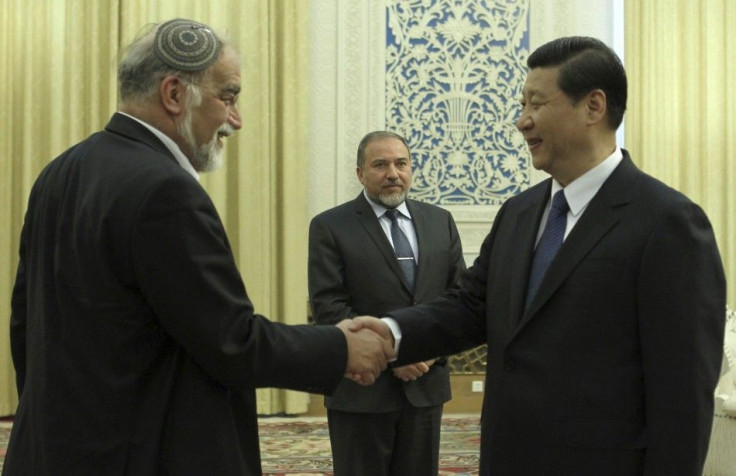Israeli Minister Tells China Strike On Iran Isn't Ruled Out

Israel's foreign minister said Friday on a visit to China that his country hopes a standoff with Iran over its nuclear program can be resolved through diplomatic means and economic sanctions, while reasserting the right to self-defense through military action.
We believe the international community is capable of stopping Iran and it's just a matter of determination and of being firm, Avigdor Lieberman told a news conference in Beijing. We prefer that the international community solve the problem though talks, negotiations and other means, but if this doesn't happen we reserve the right to defend ourselves.
Speculation has been rampant for weeks that Israel will launch a military strike to thwart Iran's nuclear ambitions. While Iran has repeatedly claimed that its program is designed for peaceful purposes such as energy production, Israel, its allies and the United Nations say the Islamic nation has been enriching uranium in a way that suggests it may be developing weapons.
Israel's Prime Minister Benjamin Netanyahu has taken a particularly strident tone against Iran, warning that a military strike is a question of when, not if. But the United States and other allies have tried to persuade the Jewish state not to resort to military action.
China, too, has urged Israel not to strike, although the Chinese government adamantly opposes Western sanctions on Iran.
China has close ties to Iran, including in energy, but Beijing also has had warm relations with Israel for about 20 years. According to its official statistics agency, Israel exported to China $2 billion in goods and services in 2010, much of it in military hardware and equipment.
It's crucial to clarify our position to China in the hope they understand our concerns, our problems, Lieberman told reporters in Beijing on Friday.
China has said little to Iran about the ongoing crisis, except in January when Premier Wen Jiabao warned Tehran against acquiring nuclear weapons.
British Prime Minister David Cameron, on a visit to the United States, said Israel wouldn't be justified in attacking Iran and that there is still time for diplomatic pressure to succeed, according to NBC News.
I don't think the Israelis should take that action now, Cameron said. We told them they shouldn't and said we wouldn't support it if they did. We've been very clear, he said.
Cameron, stressing the strong U.K.-Israeli relationship, also said Iranians have the right to develop nuclear power, as long as they give up the ambition of having military nuclear power, they can have a future as a country that has more normal relations with the rest of the world. We need to keep up the pressure to encourage them to make the right choice.
© Copyright IBTimes 2025. All rights reserved.





















